PEACE, security & climate change

We at LWU recognize the interconnectedness of peace, security, and climate change with the well-being of LGBTQ+ minorities in Uganda. Our journey in addressing these issues is deeply intertwined with our mission to advocate for the rights and protection of marginalized communities facing persecution in Uganda. Peace and Security: Peace and security are essential components of creating an environment where LGBTQ+ individuals can live free from fear, violence, and discrimination. In Uganda, LGBTQ+ minorities often face threats to their safety and well-being due to societal stigma, discrimination, and legal persecution. LWU is dedicated to promoting peace and security by advocating for the protection of LGBTQ+ rights, challenging discriminatory laws and practices, and providing support and resources to individuals facing persecution. Climate Change: Climate change poses additional challenges to LGBTQ+ minorities in Uganda, exacerbating existing vulnerabilities and inequalities. As climate-related disasters and environmental degradation intensify, LGBTQ+ individuals may face displacement, loss of livelihoods, and increased exposure to violence and discrimination. LWU recognizes the importance of addressing climate change and its impact on LGBTQ+ communities, advocating for inclusive climate policies and supporting efforts to build resilience and adaptability.
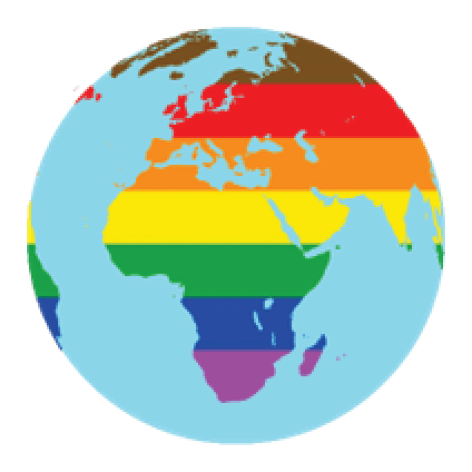
our journey
LWU’s journey in addressing the intersection of peace, security, and climate change with LGBTQ+ rights has been marked by resilience, advocacy, and community empowerment. Through grassroots activism, advocacy campaigns, and community engagement initiatives, LWU works to raise awareness about the challenges faced by LGBTQ+ minorities in Uganda and mobilize support for their rights and protection. From advocating for inclusive peace processes and conflict resolution mechanisms to promoting sustainable development practices that prioritize LGBTQ+ inclusion and resilience-building, LWU remains committed to creating a more peaceful, secure, and sustainable future for all individuals, regardless of their sexual orientation or gender identity. LWU recognizes the critical importance of addressing the intersection of peace, security, and climate change with LGBTQ+ rights in Uganda. Through advocacy, education, and community empowerment, LWU continues to champion the rights and protection of LGBTQ+ minorities, working towards a future where all individuals can live with dignity, safety, and equality, irrespective of their identities.
projects
project - 1
Advocacy for Inclusive Peace Process
LWU’s journey in addressing the intersection of peace, security, and climate change with LGBTQ+ rights have been marked by resilience, advocacy, and community empowerment. Through grassroots activism, advocacy campaigns, and community engagement initiatives, LWU works to raise awareness about the challenges faced by LGBTQ+ minorities in Uganda and mobilize support for their rights and protection. From advocating for inclusive peace processes and conflict resolution mechanisms to promoting sustainable development practices that prioritize LGBTQ+ inclusion and resilience-building, LWU remains committed to creating a more peaceful, secure, and sustainable future for all individuals, regardless of their sexual orientation or gender identity. LWU recognizes the critical importance of addressing the intersection of peace, security, and climate change with LGBTQ+ rights in Uganda. Through advocacy, education, and community empowerment, LWU continues to champion the rights and protection of LGBTQ+ minorities, working towards a future where all individuals can live with dignity, safety, and equality, irrespective of their identities.
Project Objectives
- To advocate for the meaningful inclusion of LGBTQ+ voices and concerns in peace processes and conflict resolution initiatives.
- To raise awareness about the impact of conflict and violence on LGBTQ+ individuals and communities in Uganda.
- To build partnerships and coalitions with other civil society organizations, peacebuilders, and stakeholders to advance LGBTQ+ rights within peace-building efforts.
- To empower LGBTQ+ individuals to participate in peace-building activities and advocate for their rights within their communities.
Key Initiatives
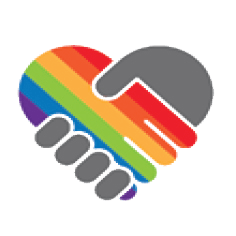
Policy Advocacy: LWU engages in policy advocacy efforts to promote the inclusion of LGBTQ+ perspectives in peace processes and conflict resolution mechanisms. This includes lobbying policymakers, advocating for LGBTQ+-inclusive language in peace agreements, and pushing for the recognition of LGBTQ+ rights as fundamental to peace and security.

Community Dialogues: The project facilitates community dialogues and discussions on the intersection of LGBTQ+ rights and peace-building. These dialogues provide opportunities for LGBTQ+ individuals to share their experiences, raise awareness about the impact of conflict on their lives, and advocate for their inclusion in peace processes.
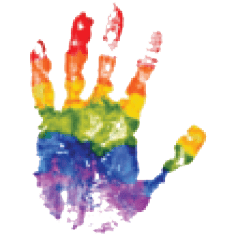
Capacity-Building Workshops: LWU organizes capacity-building workshops and trainings for LGBTQ+ activists and community leaders on peace-building, conflict resolution, and advocacy skills. These workshops empower participants to effectively engage in peace-building initiatives and advocate for LGBTQ+ rights within their communities.
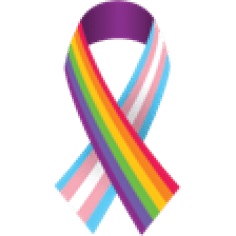
Public Awareness Campaigns: The project conducts public awareness campaigns to raise awareness about the importance of LGBTQ+ inclusion in peace processes and conflict resolution efforts. Through media outreach, social media campaigns, and community events, LWU aims to mobilize support for LGBTQ+ rights within the broader society.
Impact and Outcomes:
Through this project, LWU aims to achieve the following outcomes:
v Increased recognition of LGBTQ+ rights as integral to peace and security in Uganda.
v Greater inclusion of LGBTQ+ voices and concerns in peace-building initiatives and conflict resolution mechanisms.
v Strengthened partnerships and collaborations between LGBTQ+ activists, peacebuilders, and other stakeholders.
v Empowerment of LGBTQ+ individuals to advocate for their rights and participate in peace-building activities.
Conclusion: This project exemplifies LWU commitment to promoting LGBTQ+ rights and advancing peace and justice in Uganda. By advocating for the meaningful inclusion of LGBTQ+ perspectives in peace processes, LWU strives to create a more inclusive and equitable society where all individuals can live free from discrimination and violence, irrespective of their sexual orientation or gender identity.
project - 2
Environmental Advocacy and Policy Reforms
LWU is committed to addressing the intersecting challenges faced by LGBTQ+ minorities in Uganda, including those related to environmental degradation and climate change. Through this project, LWU aims to raise awareness about the impact of environmental issues on LGBTQ+ individuals, advocate for inclusive environmental policies, and empower the community to adapt to environmental challenges. Environmental degradation and climate change pose significant threats to communities worldwide, exacerbating existing inequalities and vulnerabilities. LGBTQ+ individuals in Uganda are disproportionately affected by these environmental challenges, as they often face social, economic, and legal barriers that limit their ability to cope with the impacts of environmental degradation and climate change.
Project Objectives
- To raise awareness about the intersection of environmental issues and LGBTQ+ rights in Uganda.
- To advocate for inclusive environmental policies that prioritize the needs of LGBTQ+ individuals and communities.
- To empower LGBTQ+ individuals to participate in environmental advocacy and adaptation efforts.
- To build partnerships and collaborations with environmental organizations, policymakers, and stakeholders to advance LGBTQ+ rights within the environmental movement.
Key Initiatives

Awareness Campaigns: LWU conducts awareness campaigns to educate the LGBTQ+ community and the broader public about the impact of environmental degradation and climate change on LGBTQ+ individuals. These campaigns raise awareness about environmental justice issues and mobilize support for inclusive environmental policies.

Policy Advocacy: LWU advocates for the development and implementation of inclusive environmental policies that address the unique needs of LGBTQ+ individuals and communities. This includes advocating for policies that promote access to clean water, sustainable livelihoods, and safe and inclusive spaces for LGBTQ+ individuals to participate in environmental conservation efforts.

Capacity-Building Workshops: LWU organizes capacity-building workshops and trainings for LGBTQ+ activists and community leaders on environmental advocacy and policy reform. These workshops provide participants with the knowledge and skills to advocate for their rights within the environmental movement and engage effectively with policymakers and stakeholders.
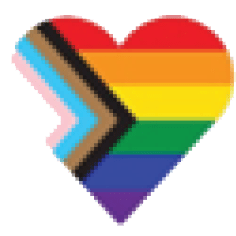
Community-based Initiatives: LWU implements community-based initiatives to promote environmental sustainability and resilience within LGBTQ+ communities. This may include tree-planting initiatives, waste management projects, and sustainable agriculture programs that empower LGBTQ+ individuals to take action to protect their environment and adapt to climate change.
Impact and Outcomes:
Through this project, LWU aims to achieve the following outcomes:
v Increased awareness of the intersection of environmental issues and LGBTQ+ rights in Uganda.
v Adoption of inclusive environmental policies that prioritize the needs of LGBTQ+ individuals and communities.
v Empowerment of LGBTQ+ individuals to advocate for their rights within the environmental movement.
v Strengthened partnerships and collaborations between LGBTQ+ organizations and environmental stakeholders.
Conclusion:
This project demonstrates LWU’s commitment to addressing the intersectional challenges faced by LGBTQ+ individuals in Uganda. By advocating for inclusive environmental policies and empowering the community to take action, LWU strives to create a more equitable and sustainable future where all individuals, regardless of their sexual orientation or gender identity, can thrive in harmony with their environment..
project - 3
Community Resilience and Climatic Adaption Programs
LWU recognizes the disproportionate impact of climate change on LGBTQ+ minorities in Uganda and is committed to building community resilience and promoting climate adaptation strategies to address these challenges. Through this project, LWU aims to empower LGBTQ+ individuals and communities to adapt to the impacts of climate change and build resilience against environmental threats. Climate change poses significant threats to communities worldwide, including increased frequency and severity of extreme weather events, rising temperatures, and changing precipitation patterns. LGBTQ+ individuals in Uganda are particularly vulnerable to the impacts of climate change due to social, economic, and legal barriers that limit their ability to cope with environmental challenges and access resources.
Project Objectives
- To build awareness about the impacts of climate change on LGBTQ+ individuals and communities in Uganda.
- To develop and implement climate adaptation programs that empower LGBTQ+ individuals to cope with environmental challenges and build resilience.
- To provide support and resources to LGBTQ+ communities to implement sustainable and adaptive livelihood strategies.
Key Initiatives
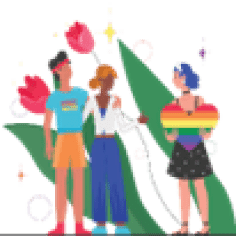
Climate Education Workshops: LWU organizes workshops and training sessions to educate LGBTQ+ individuals and communities about the impacts of climate change and strategies for adaptation. These workshops provide participants with the knowledge and skills to identify climate-related risks and implement adaptive measures.
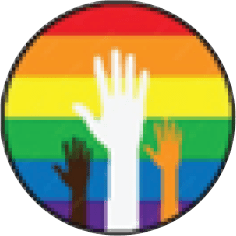
Livelihood Diversification Programs: LWU supports LGBTQ+ communities in diversifying their livelihoods and income-generating activities to enhance resilience against climate-related shocks and stresses. This may include training on sustainable agriculture practices, alternative energy sources, and eco-friendly livelihood options.

Community-based Adaptation Projects: LWU implements community-based adaptation projects that address the specific needs and vulnerabilities of LGBTQ+ communities to climate change. This may include initiatives such as water harvesting systems, soil conservation measures, and disaster preparedness and response plans tailored to the needs of LGBTQ+ individuals.

Advocacy for LGBTQ+ Inclusion in Climate Policies: LWU advocates for the inclusion of LGBTQ+ perspectives and concerns in climate policies and programs at the local, national, and international levels. This includes lobbying for LGBTQ+-inclusive climate policies, advocating for access to climate finance for LGBTQ+ communities, and promoting gender and LGBTQ+ equality in climate adaptation efforts.
Impact and Outcomes:
Through this project, LWU aims to achieve the following outcomes:
v Increased awareness and understanding of climate change impacts on LGBTQ+ communities in Uganda.
v Strengthened resilience and adaptive capacity of LGBTQ+ individuals and communities to cope with climate-related challenges.
v Enhanced livelihoods and well-being of LGBTQ+ minorities through sustainable and adaptive livelihood strategies.
v Greater recognition and inclusion of LGBTQ+ perspectives in climate policies and programs.
Conclusion:
This project exemplifies LWU’s commitment to addressing the intersectional challenges faced by LGBTQ+ individuals in Uganda. By promoting climate adaptation and resilience-building initiatives, LWU strives to empower LGBTQ+ communities to overcome environmental threats and build a more sustainable and inclusive future for all
project - 4
Research and Data Collection
LWU recognizes the importance of evidence-based advocacy and policy-making to address the unique challenges faced by LGBTQ+ minorities in Uganda. Through this project, LWU aims to generate knowledge, gather data, and conduct research on LGBTQ+ rights issues to inform advocacy efforts, raise awareness, and promote positive change within the community. In Uganda, LGBTQ+ individuals face pervasive discrimination, stigma, and violence, exacerbated by societal attitudes, cultural norms, and discriminatory laws. However, there is a lack of comprehensive data and research on the specific needs, experiences, and vulnerabilities of LGBTQ+ minorities, hindering efforts to effectively address their rights and well-being.
Project Objectives
- To conduct research and data collection initiatives to better understand the challenges, needs, and experiences of LGBTQ+ individuals in Uganda.
- To generate evidence to inform advocacy efforts, policy-making, and programming aimed at promoting LGBTQ+ rights and well-being.
- To raise awareness and visibility of LGBTQ+ issues through the dissemination of research findings and data-driven advocacy campaigns.
- To build research capacity within the LGBTQ+ community and empower individuals to participate in data collection and analysis processes.
Key Initiatives
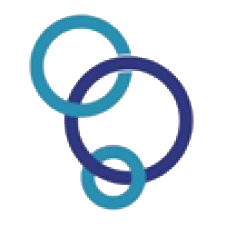
Needs Assessment Surveys: LWU conducts needs assessment surveys and studies to gather data on the specific challenges and needs of LGBTQ+ individuals in Uganda. These surveys collect information on issues such as access to healthcare, education, employment, and social services, as well as experiences of discrimination and violence.

Qualitative Research: LWU conducts qualitative research, including interviews, focus group discussions, and case studies, to explore the lived experiences, perspectives, and narratives of LGBTQ+ individuals in Uganda. This research provides insights into the socio-cultural, economic, and political factors that shape LGBTQ+ identities and experiences in the country.
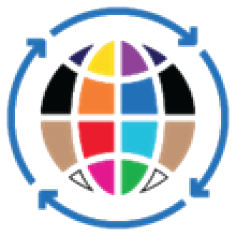
Policy Analysis: LWU conducts policy analysis and research to assess the impact of laws, policies, and regulations on LGBTQ+ rights and well-being in Uganda. This research identifies areas for advocacy and policy reform to promote greater legal recognition, protection, and inclusion of LGBTQ+ individuals in Uganda.

Capacity-Building Workshops: LWU organizes capacity-building workshops and trainings on research methodologies, data collection techniques, and data analysis for LGBTQ+ activists, community leaders, and researchers. These workshops empower participants to conduct their own research and contribute to the evidence base on LGBTQ+ issues in Uganda.
Impact and Outcomes:
Through this project, LWU aims to achieve the following outcomes:
v Enhanced understanding of the challenges and needs of LGBTQ+ individuals in Uganda.
v Increased availability of data and evidence to inform advocacy efforts and policy-making on LGBTQ+ rights.
v Raised awareness and visibility of LGBTQ+ issues through data-driven advocacy campaigns and research dissemination.
v Strengthened research capacity within the LGBTQ+ community and increased participation in data collection and analysis processes.
Conclusion:
This project exemplifies LWU’s commitment to evidence-based advocacy and informed decision-making to promote LGBTQ+ rights and well-being in Uganda. By conducting research and gathering data, LWU aims to amplify the voices of LGBTQ+ minorities, inform policy and programming, and drive positive change towards a more inclusive and equitable society for all.
project - 5
Partnership and Collaboration
LWU recognizes the importance of building strong partnerships and collaborations to effectively address the complex challenges faced by LGBTQ+ minorities in Uganda. Through this project, LWU aims to establish strategic alliances with key stakeholders, including civil society organizations, government agencies, international partners, and community groups, to advance LGBTQ+ rights, promote inclusion, and drive positive change within the community. LWU operates within a broader ecosystem of organizations, institutions, and stakeholders working towards social justice, human rights, and LGBTQ+ equality in Uganda. By fostering partnerships and collaboration, LWU leverages collective expertise, resources, and networks to amplify its impact, advocate for policy reform, and create supportive environments for LGBTQ+ individuals and communities.
Project Objectives
- To establish and strengthen partnerships with civil society organizations, government agencies, and other stakeholders to advance LGBTQ+ rights and inclusion in Uganda.
- To foster collaboration and coordination among LGBTQ+ organizations and community groups to promote collective action and amplify advocacy efforts.
- To engage with international partners and donors to leverage resources, expertise, and support for LGBTQ+ rights initiatives in Uganda.
- To build alliances with allies and champions within the broader community to create inclusive and supportive environments for LGBTQ+ individuals and communities..
Key Initiatives

Strategic Partnerships: LWU forms strategic partnerships with civil society organizations, human rights groups, and advocacy networks to collaborate on joint initiatives, share resources, and coordinate advocacy efforts. These partnerships strengthen the collective voice of the LGBTQ+ movement and enhance its capacity to influence policy and drive change.

Community Engagement: LWU engages with LGBTQ+ organizations, community groups, and grassroots activists to foster collaboration and coordination at the local level. This includes organizing community forums, coalition-building activities, and joint campaigns to address shared challenges and advance common goals.

International Collaboration: LWU engages with international partners, donors, and organizations working on LGBTQ+ rights to access resources, technical support, and solidarity for its initiatives in Uganda. This collaboration strengthens LWU’s advocacy efforts, increases its visibility on the global stage, and enhances its capacity to effect change at the local level.
Impact and Outcomes:
Through this project, LWU aims to achieve the following outcomes:
v Expanded network of partners and allies committed to advancing LGBTQ+ rights and inclusion in Uganda.
v Enhanced coordination and collaboration among LGBTQ+ organizations and community groups to amplify advocacy efforts and drive change.
v Increased engagement with government agencies and policymakers to influence policy-making processes and promote LGBTQ+ rights.
v Strengthened support from international partners and donors for LGBTQ+ rights initiatives in Uganda.
Conclusion:
This project demonstrates LWU’s commitment to leveraging partnerships and collaboration to advance LGBTQ+ rights and inclusion in Uganda. By working collectively with diverse stakeholders, LWU seeks to create a more inclusive and supportive environment for LGBTQ+ individuals and communities, driving positive change and promoting equality for all.